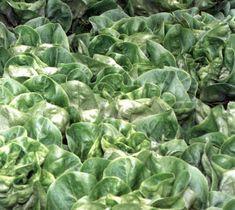
The European Food Safety Authority (EFSA) has assessed the risks and benefits of nitrates in vegetables to consumers and concluded that the beneficial effects of eating vegetables and fruit far outweigh potential risk to human health from exposure to nitrate through vegetables.
The EFSA’s contaminants panel (CONTAM) revealed that the average consumer eating approximately 400g of mixed vegetables and fruit per day would not exceed the acceptable daily intake for nitrate. In estimating exposure, the panel assumed that all of the 400g of fruit and vegetables eaten by consumers could potentially be vegetables, which are substantially higher in nitrate content than fruit. The panel said that a small part of the European Union population - 2.5 per cent, who are high consumers of green leafy vegetables, could exceed the acceptable daily intake for nitrate.
The European Commission backed the report and the EFSA’s CONTAM panel was assisted by an expert working group which also included a member of EFSA’s panel on dietetic products, nutrition and allergies.
Josef Schlatter, chair of EFSA’s the panel, said: “We assessed both the risk and benefits of exposure to nitrate from vegetables and concluded that the beneficial effects of vegetables prevail.”
The main dietary sources of nitrate are vegetables, preserved meat and drinking water, but vegetables and fruit can represent over half or, as much as two thirds, of all nitrate intake. Nitrate is present in most vegetables to a varying degree but green leafy vegetables, such as spinach, lettuce and rucola have the highest nitrate content. Nitrate content of vegetables also varies in relation to other factors, such as the extent of use of nitrate fertilisers and the amount of sunlight to which vegetables are exposed. Vegetables such as lettuce and spinach are already subject to EU regulation laying down maximum nitrate levels. The CONTAM panel noted that further mitigation of nitrate intake may result from processing - through washing, peeling and/or cooking for example.
Epidemiological studies do not suggest that nitrate intake from diet or drinking water is associated with increased cancer risk. However, the human body changes nitrate into compounds, such as nitrite and nitric oxide, which can have possible health implications.